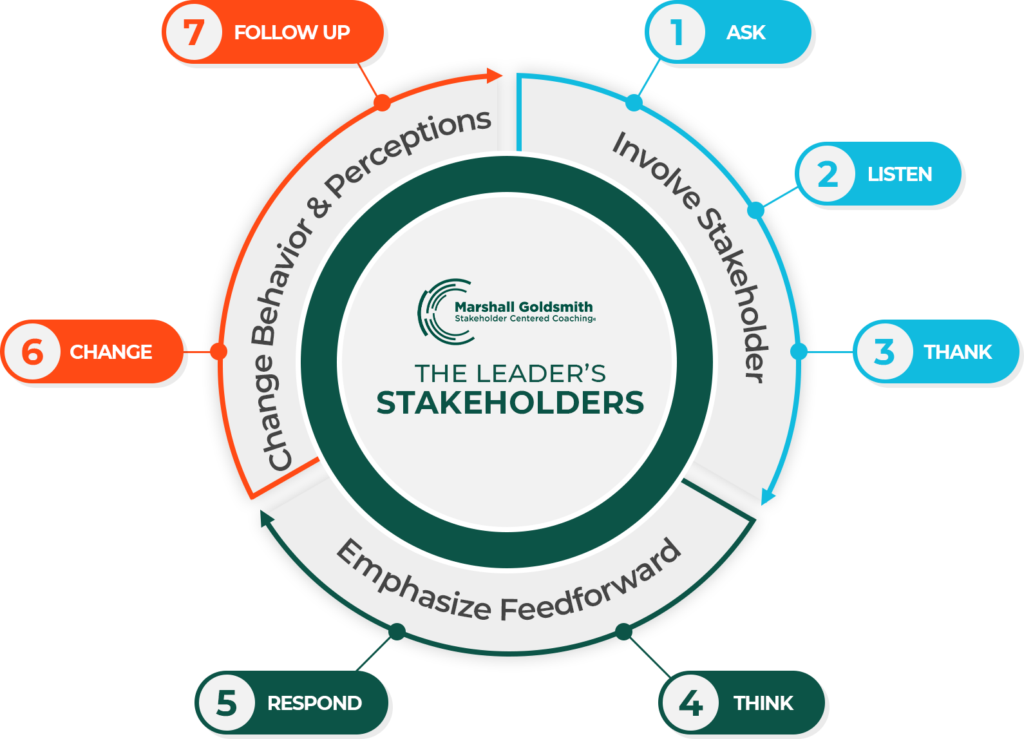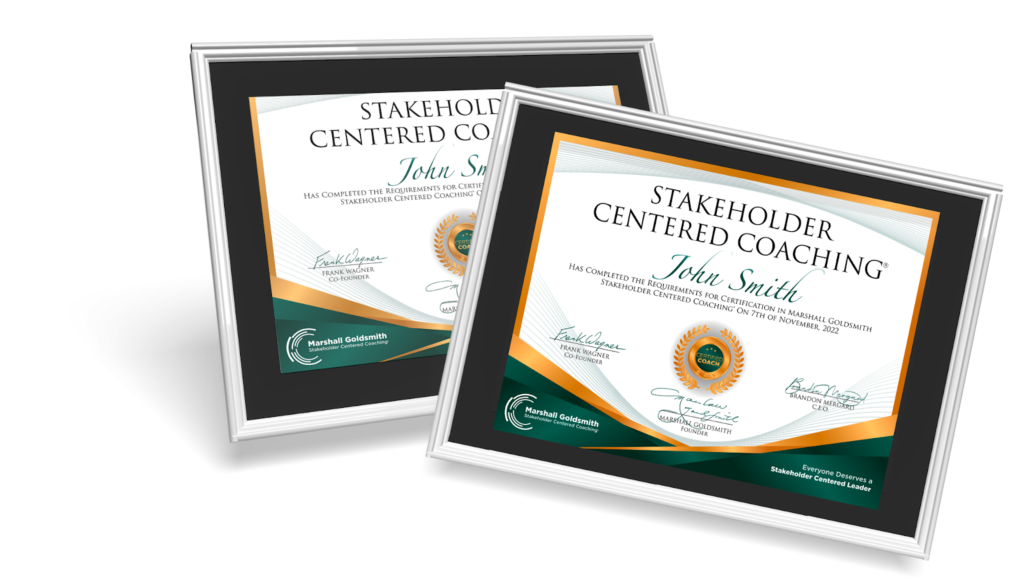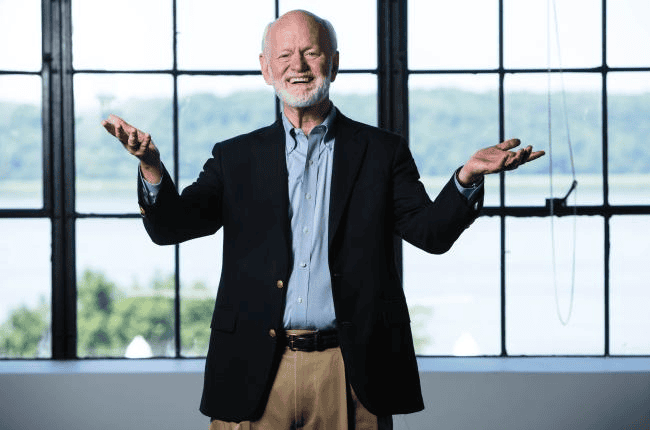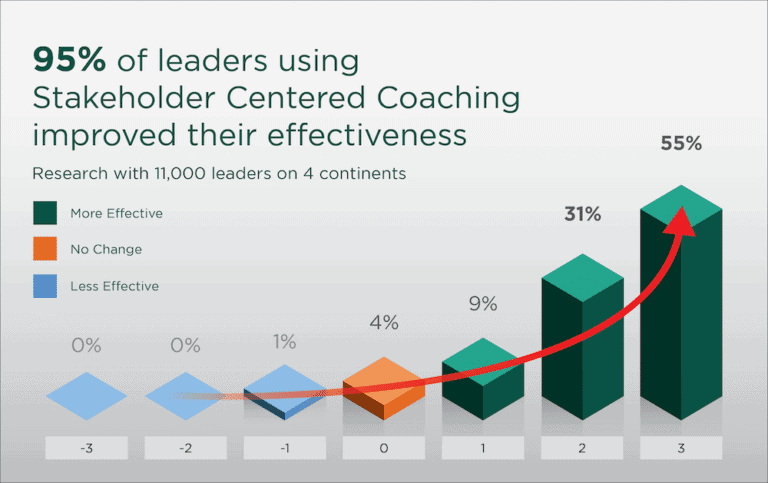As an online coach, you’re always thinking about how you can better serve your clients and become a highly effective coach. And, oftentimes, that involves exploring and learning about different coaching methodologies. One that may have popped up in your searches is the Marshall Goldsmith Stakeholder Centered Coaching® Certification.
If you’ve heard the ever-popular motivational quote, “What got you here won’t get you there,” they’re probably unknowingly quoting executive coach and author Marshall Goldsmith. His book, What Got You Here Won’t Get You There, is just one of his many accomplishments.
Perhaps his crowning achievement, though, is the program that actually teaches coaches everywhere how to use his methodology to grow. So today, we’re diving deeper. Keep reading to learn:
- What is stakeholder centered coaching?
- What is Marshall Goldsmith certification?
- Specialty of the Marshall Goldsmith Stakeholder Centered Coaching certification
What is Stakeholder Centered Coaching?
Think of a coach guiding an athlete with the team, cheering from the sidelines. That’s stakeholder centered coaching in a nutshell.
This approach turns traditional coaching on its head by involving those around you—colleagues, employees, and even clients—in your growth journey to create lasting change.

Their feedback isn’t just welcomed; it’s critical to long-term improvement because they see your performance firsthand.
1. Key components of the Marshall Goldsmith Stakeholder Centered Coaching methodology
The methodology offers a collaborative approach that aligns with the idea that leadership behavior is not just about individual traits but also about the impact on the team and the organization as a whole. Here are the key components:
- Identification of stakeholders: The Marshall Goldsmith Stakeholder Centered Coaching process begins by identifying key stakeholders, including supervisors, peers, subordinates, and sometimes external clients or partners.
- Feedback collection: Once stakeholders are identified, feedback is collected from them regarding the leader’s performance and behavior. This feedback is often obtained through surveys, interviews, or other assessment tools.
- Feedback review and selection: The coach and the coachee (the individual receiving coaching) review and select specific behaviors or areas for improvement based on the feedback received. The emphasis is on concrete, observable behaviors.
- Development planning: A development plan is created to address the identified areas for improvement. This plan outlines specific actions, goals, and timelines for the coachee to work on.
- Regular follow-up and measurement: Regular follow-up sessions are conducted to track progress and measure results. The coach works with the coachee to ensure that the agreed-upon actions are being implemented and to make any necessary adjustments to the plan.
- Stakeholder involvement in follow-up: Stakeholders continue to be involved in the coaching process, providing ongoing feedback and assessing changes in the leader’s behavior.
- Accountability: The coachee is held accountable for their commitments and progress. The focus is on ensuring that positive changes are sustained over time.
Marshall Goldsmith Stakeholder Centered Coaching is particularly effective for leadership development because it recognizes leadership as a relational and context-specific activity. By involving those directly impacted by a leader’s actions, the coaching process becomes more targeted, relevant, and likely to lead to meaningful behavioral change.
This is all taught within the program via the trifecta of eLearning, live mentorship hours, and field practice with an actual client. All are required to become fully certified.
What is Marshall Goldsmith certification?
Essentially, the Marshall Goldsmith Stakeholder Centered Coaching certification is your (affordable) golden ticket to learning from one of the best in leadership development.

Grounded in fundamental principles, the certification emphasizes a practice-based approach to changing behavior and modifying behaviors in today’s rapidly moving and ever-changing business landscape.
Who are the founders?
Marshall Goldsmith joined forces with Frank Wagner and Chris Coffey to unlock the potential of leaders worldwide. These three musketeers of coaching have quite the track record.

Goldsmith’s name rings bells; after all, he’s authored bestsellers and topped lists as a leading executive coach. He saw what many missed – that for change to stick, it needs buy-in from everyone involved.
Frank Wagner specializes in behavioral change, while Chris Coffey brings his expertise in feedback into play. Together, they form an unstoppable force shaping effective leadership through actionable feedback loops and stakeholder engagement.
This trio isn’t just preaching theory; they’ve been there and done that with decades of combined experience in transforming top-tier execs into even greater leaders.
To them, your stakeholders aren’t just spectators. They’re also part of your team playing a pivotal role in your growth saga – hence ‘Stakeholder Centered’ right smack in the title.
You can bet these guys don’t do things halfway either – every strategy and tool comes tried and tested from their own success stories, helping real-world bigwigs level up their game.
If you’re looking to get coached or become a coach who really makes waves, then remember:
It takes one to know one—and these founders sure know how to coach.
How the coaching methodology works
Once the coaching journey kicks off, the coach and leader team up to decide how often they should touch base – it could be as infrequent as once a month. The leader then holds quick check-ins with stakeholders monthly, keeping it snappy at just 2 to 5 minutes each – this can be in-person or via survey.
Then, there are two progress checkpoints at five months and eleven months. Here, stakeholders provide anonymous feedback on the leader’s improvement, zeroing in on the specific behaviors the leader aimed to polish.
The meeting frequency isn’t cumbersome, and the survey focuses on quick, time-efficient feedback. The goal is not for it to be time-consuming for the stakeholders.

It’s dynamic process work that keeps things agile, ensuring continuous growth and fine-tuning along the way! This is a methodology known for breeding successful leaders.
Here’s how it plays out in the certification
Many successful people and coaches have graduated from this program able to help powerful people modify behaviors and shift natural beliefs about how things “should be” done. Using the fundamental principles above, they split the developmental process of the program into three stages:
- Stage 1 – eLearning: The first phase is self-paced modules that go through the methodology. Make sure that you effectively dedicate time to study and learn before you go to the next phase.
- Stage 2 – Mentorship: You’ll participate in weekly calls with other coaches to develop disciplined practice.
- Stage 3 – Practice: You’ll work through a typical engagement cycle with a client to work toward achieving positive outcomes with them with your new skills.
There’s a high degree of commitment required. But if you want to be an executive coach, this could be the greatest gift you give yourself.
Specialty of the Marshall Goldsmith Certification
The Marshall Goldsmith Stakeholder Centered Coaching Certification isn’t just another badge for your website! It’s a framework you can use to enhance your client transformations.
1. Feedback as a catalyst for change
Stakeholder feedback is not just used for assessment but is seen as a catalyst for change. The model recognizes that leaders must address specific behaviors to enhance their overall effectiveness.
2. Global application
Marshall Goldsmith’s coaching model has been applied globally across various industries and sectors. Its adaptability makes it suitable for leaders in diverse cultural and organizational contexts.
3. Learning-by-doing framework
The program offers a 70/20/10 model, a common leadership development framework.
It indicates that 70% of learning is done through hands-on, practical experience, 20% is done through social learning like mentoring or coaching, and 10% is done via formal learning, which, in this case, is the eLearning portal the program offers.
4. Proven track record of Marshall Goldsmith
Marshall Goldsmith’s coaching methodologies, including stakeholder-centered coaching, have been applied successfully by numerous executives and organizations worldwide.
The model’s effectiveness is backed by case studies and real-world results.
5. Credits toward ICF accreditation
You do graduate the program with 36 International Coachin Federation Continuing Coach Education hours to help you achieve your goals of accreditation.
Cost of Marshall Goldsmith Stakeholder Centered Coaching
The cost for the Marshall Goldsmith Stakeholder Centered Coaching certification $4,000 USD, which you can pay in full or split into up to ten payments. If you split the payments up, you will pay incrementally more – with the full ten payment breakdown coming to a total of $4,150. So, not bad!
Keep in mind that you get lifetime access to:
- Your certification
- Support and community
- Growth opportunities
Your initial certification process will last 7 to 9 months on average. This includes live coaching labs and your 6-month practice coaching project.
If you’re not sure if you want to join, you can try the free introductory course first and read reviews.
Reviews for Marshall Goldsmith Stakeholder Centered Coaching
So, what is it like to experience this coaching certification?
Below are some reviews we found; however, remember that these reviews are available on the MGSCC website. Because it’s difficult to find public reviews for this certification program, we suggest reaching out to the program manager to get in touch with past students about their experience!
“MGSCC is the most powerful process for behavioral coaching I have ever come across. The training team is very supportive all the way through.”
– Dolores Sarrion, Former HR Director @ Kellog & PepsiCo, Spain
“I have been a leadership coach for 35 years. SCC gives me advantages and commercial success in my coaching better than any other model.”
– Dr. Phil Merry, Leadership Coach, Singapore
Please note that the Paperbell team attempted to reach out but didn’t get a response. The lack of reviews online may be a deal breaker. But note that just because no reviews are publicly available mean that the certification isn’t worth getting. If this aligns with your goal, get all the information you need before deciding.
Marshall Goldsmith Stakeholder Centered Coaching is Great for Executive Coaches
Now, overall, if your goal is to be a career coach or executive coach, the Marshall Goldsmith Stakeholder Centered Coaching methodology could prove highly valuable to you.
However, if you’re a health coach, life coach, or online business coach – while some components may be useful, the context isn’t built to support your unique expertise. So, consider your goals and which coaching skill may serve you best before investing. No matter which coach training certification you enroll in, Paperbell can help you run your successful coaching business — the simple way. Grab your free trial to test it out for yourself!










